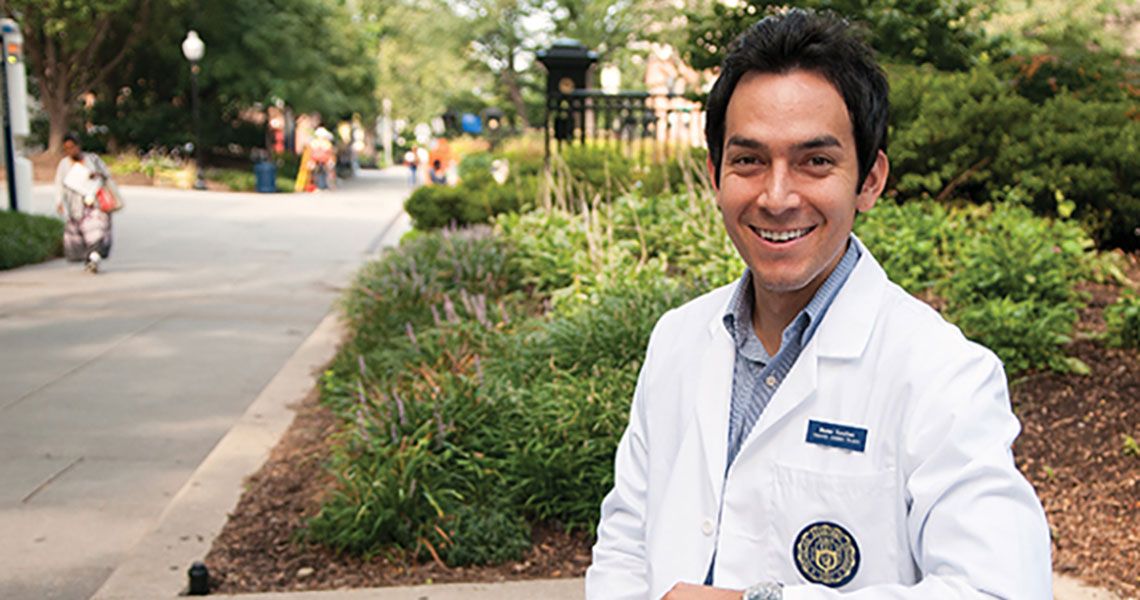Guillermo “Memo” V. Sanchez (‘13) may not wear a superhero costume with a “DD” on his chest, but he is about to transform into a public health hero: a Disease Detective.
Sanchez, MSHS, MPH, PA‑C, will start a two-year fellowship this summer to become a member of the Epidemic Intelligence Service (EIS) of the Centers for Disease Control and Prevention (CDC). Started in 1951, the EIS program teaches candidates to apply epidemiology to solve public health problems through on-the-job training and service fellowship.
“I am thrilled to have the opportunity to learn and apply epidemiology to answer relevant and timely public health questions,” Sanchez said. “There is no better training available than EIS.”
When disease outbreaks or other public health threats emerge, EIS officers are on the scene. They support more than 100 public health investigations each year in the U.S. and worldwide. They are the first responders for infectious and noninfectious disease outbreaks, global health, injury prevention, environmental health, and occupational health issues.
EIS fellowships are highly competitive. Approximately 600 candidates -- many doctoral-level professionals and physicians -- apply for 60-80 seats in the program annually. Though less common, other healthcare professionals, including PAs, might be eligible to apply. Candidates must have a record of high academic achievement, teamwork, innovation, and leadership. And flexibility. EIS officers must be ready to go anywhere in the world at a moment’s notice to provide rapid, creative, and effective solutions.
Sanchez first learned about EIS while a PA student at GW. “After reading about it online, I concluded this was exactly the kind of training that I wanted,” he recalled. “I loved that EIS provides a skillset to better enable me to use my clinical and epidemiological knowledge to solve relevant and timely public health problems.”
Sanchez worked as an emergency medicine PA in downtown Atlanta and as a public health scientist contractor at the CDC for several years before applying to the program. He credits his GW experience with preparing him for the EIS.
“The GW PA program provided a well-rounded and rigorous training in a metropolitan city with professionals and patients from all over the world,” he said. “This will undoubtedly contribute to my future experiences as an EIS officer. However, what I value most from my GW experience is the mentors and friendships that I still maintain today.”
After completing his EIS training, Sanchez wants to serve both his patients and their communities in dual roles. “I plan on continuing my work in public health with more competence and leadership experience to better serve population health in addition to doing part-time or per diem work as an emergency medicine PA,” he said. “If you strike the right balance between the two roles, you can have an enormous impact on patients and populations you serve all while still maintaining a meaningful work-life balance, which is very important to me.”
Something tells us that a public health hero like Sanchez will successfully manage both roles.



